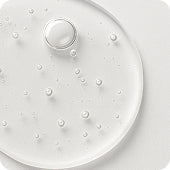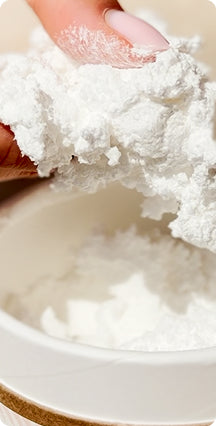"An apple a day keeps the doctor away"
"An apple a day keeps the doctor away"

"An apple a day keeps the doctor away". That's an English proverb, and rightly so. Because an unpeeled apple contains only 54 kcal of vitamins A, E, C, B1, B2 and niacin. Also the minerals sodium, potassium, calcium, phosphorus, magnesium and iron. Today we want to clarify why vitamins are so important for us.
What are vitamins?
Nutrients can be divided into macro and micronutrients. The macronutrients include carbohydrates, fats and proteins. Micronutrients include trace elements, minerals and vitamins. Micronutrients do not provide energy directly, but are involved in important metabolic processes, for example, or also contribute to maintaining a strong immune system. The body cannot produce most of the micronutrients itself. Apart from vitamin D, which can also be formed with the help of UV rays, and vitamin K, which can also be formed by intestinal bacteria, vitamins must be ingested through diet.
What vitamins are there?
There are currently 13 known vitamins, which can be divided into water-soluble and fat-soluble vitamins.
Fat-soluble vitamins:
- Vitamin A
- Vitamin D
- vitamin E
- vitamin k
Water-soluble vitamins:
- Vitamin B1
- Vitamin B2
- Vitamin B3
- Vitamin B5
- Vitamin B6
- Vitamin B7
- Vitamin B9
- Vitamin B12
- vitamin C
Fat-soluble vitamins
As the name suggests, in order for the intestines to be able to absorb these vitamins, fats must also be taken in at the same time. A low-fat diet therefore leads to smaller amounts of fat-soluble vitamins entering the organism.
Vitamin A (retinol)
- "A" for "eye vitamin": Vitamin A plays an important role in the visual process and is responsible for the formation of the visual pigment rhodopsin.
- But vitamin A is also important as a protective factor for skin and mucous membranes and as an antioxidant.
- Vitamin A is only found in animal foods.
- However, the body can form vitamin A itself from the precursor beta-carotene. Beta-carotene is found, for example, in carrots, spinach, pumpkin or apricots
Vitamin D (Calciferol)
- Vitamin D is primarily responsible for bone formation and the absorption of calcium and phosphate in the body.
- You get very little vitamin D from food. It can be found in mushrooms, for example.
- However, the body can synthesize vitamin D itself. Vitamin D can be formed from cholesterol when the sun shines on the skin.
Vitamin E (tocopherol)
- Vitamin E serves to protect food and body fats. As an antioxidant and scavenger of free radicals, the vitamin prevents the destruction of cell walls.
- Particularly good sources of vitamin E are vegetable oils, nuts, beans, kale or soybeans.
vitamin k
- Without vitamin K, your wounds would probably continue to bleed forever. Because vitamin K promotes blood clotting and is therefore involved in the formation of scab. It also prevents calcium deposits in blood vessels and bone loss in women after menopause.
- Vitamin K can be found primarily in green vegetables (e.g. broccoli, Brussels sprouts, kale or parsley).
Water-soluble vitamins
In contrast to the 4 fat-soluble vitamins, the water-soluble ones are found in the blood, stomach or in the spaces between cells. An excess of water-soluble vitamins is therefore practically impossible.
Vitamin B1 (thiamine)
- Thiamine contributes to the metabolism of carbohydrates and supports heart function and nerve activity.
- Vitamin occurs eg in cereals, but also in peas, walnuts, amaranth and lentils.
Vitamin B2 (Riboflavin)
- Riboflavin has an influence on the entire metabolism and hormone production. We have the vitamin to thank for the fact that we can obtain energy from proteins, fats and carbohydrates.
- Whole grain products provide a good amount of the vitamin. But foods such as rosemary, broccoli and spinach or yeast are also recommended.
Vitamin B3 (Niacin)
- Niacin comes in 2 forms: nicotinic acid and nicotinamide. It contributes to the energy metabolism and is important for the nervous system, the psyche, the mucous membranes, skin, as well as reducing tiredness and fatigue.
- Niacin can be found, for example, in nuts, mushrooms and whole grain bread.
Vitamin B5 (pantothenic acid)
- Our body would not function without pantothenic acid. It contributes to normal energy metabolism and is involved in at least 100 other reactions in the body.
- Pantothenic acid can be found in almost all foods (watermelon, peanuts, porcini mushrooms and oatmeal). A defect is therefore almost impossible.
Vitamin B6 (pyridoxine)
- Vitamin B6 is also involved in metabolism. It also regulates hormone activity and is important for the nervous system and the psyche.
- Pyridoxine is found, for example, in cereals, nuts, potatoes and bananas.
Vitamin B7 (biotin)
- Biotin is significantly involved in the formation of fatty acids, glucose and the breakdown of amino acids. Biotin is also often considered a "beauty vitamin" because it supports keratin proteins, which help maintain normal skin and hair.
- Foods that contain particularly biotin are soybeans, nuts, fruit, lentils or spinach.
Vitamin B9 (folic acid)
- Folic acid is essential for development in the body and is involved in growth processes, cell division and formation, and blood formation. Adequate intake of folic acid is particularly important for the normal development of the child during pregnancy and breastfeeding.
- Folic acid can be found in leafy vegetables (e.g. spinach) or in soybeans, tomatoes, beetroot or cress.
Vitamin B12 (cobalamin)
- Vitamin is an essential vitamin that is responsible for the formation of red blood cells. A sufficient amount of vitamin--reduces tiredness and fatigue and contributes to energy-yielding metabolism, immune system and nervous system function.
- The vitamin is often on everyone's lips because it is only found in animal foods and vegans and vegetarians do not absorb any through the plant-based diet. But that's easily remedied: The vitamin can easily be supplemented in the form of dietary supplements.
Vitamin C (ascorbic acid)
- Vitamin C is important for bones, cartilage, teeth and gums. It also plays an important role in the immune and nervous systems and in energy metabolism. Ascorbic acid is also one of the antioxidants and thus reduces free radicals. Free radicals promote the development of diseases.
- Citrus fruits, acerola, black currants, parsley or dried mango have a particularly high amount of vitamin C.
Rather too much than too little?
If you take in more fat-soluble vitamins than your body needs, it stores them in different places in the body. For example in the liver or in adipose tissue. Therefore, a continuous supply of these vitamins is usually not necessary. Some vitamins can be stored for a few weeks and others for up to several years. So don't worry if you don't manage to get your daily portion of fruit and vegetables.
However, if you store too much or take too large amounts of vitamins in the form of dietary supplements, an overdose can occur. This so-called hypervitaminosis can occur with symptoms such as headaches, nausea, blurred vision or hair loss.
With water-soluble vitamins, an overdose cannot occur, since excess can simply be excreted and (apart from vitamin B12) cannot be stored in the body. However, they must therefore be constantly replenished.
The daily requirement is individual and depends, for example, on gender, age, previous illnesses and state of health or stress.
Vitamin deficiency has many symptoms and often there is not just one vitamin deficiency, but a combination. However, with a balanced and varied diet and supplementation with vitamin B12, there can usually be no deficiency if you do not have any previous illnesses. It is clear that we do not have to take in all vitamins every day, as there are some that are stored in the body. If you are of the opinion that you have a vitamin deficiency, do not just take any preparations, but let the doctor examine you and advise you.
If you would like to be informed directly about the latest blog posts, please follow us Instagram ! :-)












